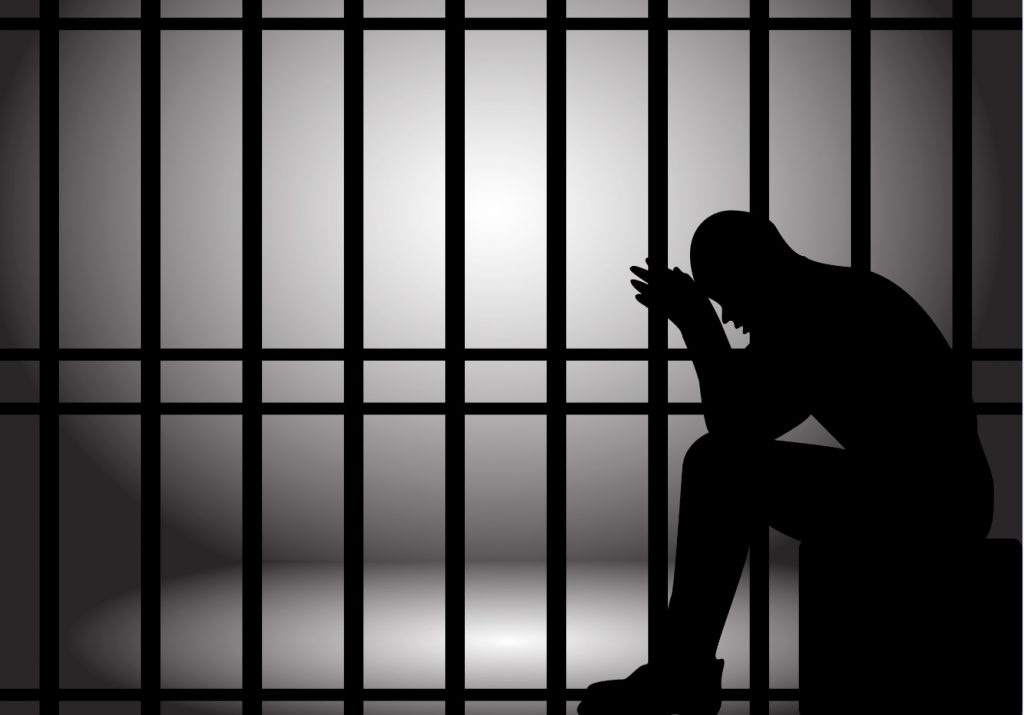Rights of the Prisoners and legal provisions under the Indian Legal System
Rights of the Prisoners
We all know that conviction of a person for a crime does not reduce the person into a non-person, and he is entitled to all the rights, which are generally available to the non-prisoner but subject to some legal restrictions.
Capacity of the prison inmates:
India has a total of 1387 with 366,781 inmates.
RIGHTS OF PRISONERS AND ROLE OF JUDICIARY
Right to life and personal liberty:
This was well followed in Kharak Singh v. State of UP
Article 21 equally prohibits the mutilation of the body by the amputation of leg or arm or the putting out of an eye or the damage of any other organ of the body through which the one contacts with the other world.
Right to live with human dignity:
A prisoner continues to enjoy all his fundamental rights including the right to life and does not cease to be a human being even when lodged in jail. It is no more open to debate that convicts are not wholly denude of their fundamental rights.
Medical aid and assistance
Rasikbhai Ramsing Rana v. State o f Gujarat
The petitioners convicted in the Central jail was suffering from serious ailments and was deprived of proper and immediate medical treatment for want of jail escorts required to carry them to hospital. The High Court expressed shock and called authorities who acted with promptness and issued with necessary directions in this regard and held that negligent Officers were to be held personally liable.
Right to speedy trial:
AR Antulay v. RS Nayak
The court held that the right to speedy trial flowing from Article 21, is available to accused at all the stages, namely, the stage of investigation, trial, appeal, revision and re-trial. The court further said that the accused cannot be denied the right of speedy trial merely on the ground that he had failed to demand a speedy trial. The time limit has to be decided by balancing the attendant circumstances and relevant factor.
Right to free legal aid :
Access to court and legal facilities is essential for giving a free and fair trial to these inmates, which is the mandate of Article 21 of the Constitution.
Sukdas v. Arunachal Pradesh
The top Court held that a free legal assistance at State cost is a fundamental right of a person accused of an offence which may involve jeopardy to his or her life or personal liberty.
To receive copy of the judgement at free of cost:
The accused is entitled to be supplied a copy of the judgement of the convicting court. The failure to provide the copy would be violative of Article 21 of the Constitution.
Right to be released on due date:
All the prisoners shall be released from prison on the completion of their sentence and it is the duty of the prison staff to notify the releasing date of every prisoner in the register to be maintained by Jailer.
MAJOR ISSUES CONCERNING THE PRISONERS
The hon’ble Supreme Court of India in the case of rama murthy v state of karnataka held the following issues:
- 80% prisoners are under trials
- prisoners are not released, even though bail is granted.
- Punishment carried out by jail authorities not coherent with punishment given by court.
- Lack or insufficient provision of medical aid to prisoners
- Callous and insensitive attitude of jail authorities
- Harsh mental and physical torture
- As indigent prisoners don’t have houses, rjection of surety bonds due to lack of money or verification of addresses.
- Lack of proper legal aid
- Corruption and other malpractices.
SOLUTION TO THOSE PROBLEMS
Prison reforms are important to ensure that established principles are respected and in compliance with relevant international standards and norms, the human rights of prisoners protected and their prospects for social reintegration increased.
- National legislation practices and policies must be guided by the international standards which are developed to protect the human rights of prisoners.
- Prison torture in all forms is banned by the the 1949 Geneva Conventions, the American Convention on Human Rights, 1948 Universal Declaration of Human Rights (UDHR),etc.
- Prison authorities are responsible to ensure the supervision and treatment of prisoners if it is in line:
- with respect to individuals’ human rights,
- to the rule of law,
- that the period of imprisonment is used to prepare individuals for life outside the prison following release.
PRISON WELFARE SCHEMES
- Prison welfare schemes should be introduced so that some productive work is done by the prisoners so that they do not indulge in other nefarious activities while they are in jail.
- The prisoners can participate in games and sports activities.
- Prisoners can be made to work in various factories to make them understand the importance of work and inculcate these principles in their life outside prison too.
- Recreational facilities can be given to the inmates such as vocational training, yoga, education, meditation, creative art therapy, painting etc.
- Job Placement should be provided to the prisoners so that they can earn their dignity back in the society which they have lost.
- They can prepare eatable goods, shirts, carpets, khadi clothes, etc.
- They can be allocated creative work like making showpieces like small temples, flower vases, braille books for the blind, furniture, wooden chairs, tables etc.
- Such types of programs should not be optional and this should be strictly enforced by the jail authorities.

